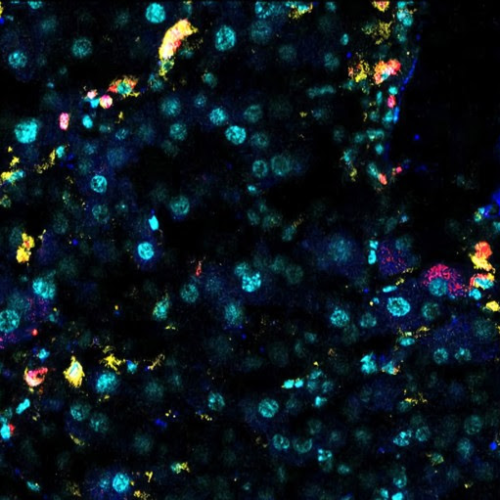NEWS FEATURE15 May 2024 By Carissa Wong Researchers are using new molecules, engineered immune cells and gene therapy to kill senescent cells and treat age-related diseases. Illustration: Paweł Jońca Lurking throughout your body, from your liver to your brain, are zombie-like entities known as senescent cells. They no longer divide or function as they once...
Tag: <span>Aging</span>
Platelet Cells That Appear With Aging Lead to Blood Clotting and Disease
A secondary population of platelets appears with aging that increases the risk of blood clotting diseases.News Published: May 15, 2024 | Original story from the University of California, Santa Cruz Read time: 3 minutesAs people age, they become more prone to blood clotting diseases, when blood cells called platelets clump together when they don’t need...
In the resuscitation discussion, do words matter between doctors and patients?
by Rutgers University Credit: CC0 Public DomainAdults 65 and older who were hospitalized for a variety of medical conditions had highly satisfying conversations about whether they wanted CPR, regardless of whether doctors used the terms “allow a natural death” or “do not resuscitate” for indicating no CPR, according to a pilot study by Rutgers Health...
Age-related changes in skin may contribute to melanoma metastases
by Johns Hopkins University School of Medicine Ashani Weeraratna, Ph.D. Credit: Will Kirk/JHUAge-related changes that cause the skin to stiffen and become less elastic may also contribute to higher rates of metastatic skin cancer in older people, according to research by investigators from the Johns Hopkins Kimmel Cancer Center. The study, published March 12 in...
Common Biological Basis Identified in Schizophrenia and Aging
Tightly synchronized genetic changes in two types of brain cells may underlie cognitive impairment in both conditions. Researchers from the Broad Institute of MIT and Harvard, Harvard Medical School, and McLean Hospital have uncovered a strikingly similar suite of changes in gene activity in brain tissue from people with schizophrenia and from older adults. These...
Health and zombie cells in aging
Peer-Reviewed Publication MAYO CLINIC With age, cells can experience senescence, a state where they stop growing but continue releasing inflammatory and tissue-degrading molecules. When a person is young, the immune system responds and eliminates senescent cells, often referred to as zombie cells. However, zombie cells linger and contribute to various age-related health problems and diseases....
Magnesium’s pivotal role in slowing aging’s impact
By Dr. Priyom Bose, Ph.D.Feb 13 2024Reviewed by Benedette Cuffari, M.Sc. Aging is associated with many biological, physiological, and psychological changes, some of which include a decline in cognitive function, greying of hair, frailty, and increased risk of contracting certain diseases. Aging also increases the risk of chronic diseases such as diabetes, hypertension, and cardiovascular...
T cells can be reprogrammed to fight aging
Cold Spring Harbor LaboratoryThe fountain of youth has eluded explorers for ages. It turns out the magic anti-aging elixir might have been inside us all along. Cold Spring Harbor Laboratory (CSHL) Assistant Professor Corina Amor Vegas and colleagues have discovered that T cells can be reprogrammed to fight aging, so to speak. Given the right...
Could a drug prevent hearing loss from loud music and aging?
Peer-Reviewed PublicationUNIVERSITY OF CALIFORNIA – SAN FRANCISCO Could a Drug Prevent Hearing Loss from Loud Music and Aging?Researchers have found a gene that links deafness to cell death in the inner ear in humans – creating new opportunities for averting hearing loss. A person’s hearing can be damaged by loud noise, aging and even certain...
New roles for autophagy genes in cellular waste management and aging
Autophagy genes help extrude protein aggregates from neurons in the nematode C. elegans Peer-Reviewed Publication BUCK INSTITUTE FOR RESEARCH ON AGING Autophagy, which declines with age, may hold more mysteries than researchers previously suspected. In the January 4th issue of Nature Aging, it was noted that scientists from the Buck Institute, Sanford Burnham Prebys and...




